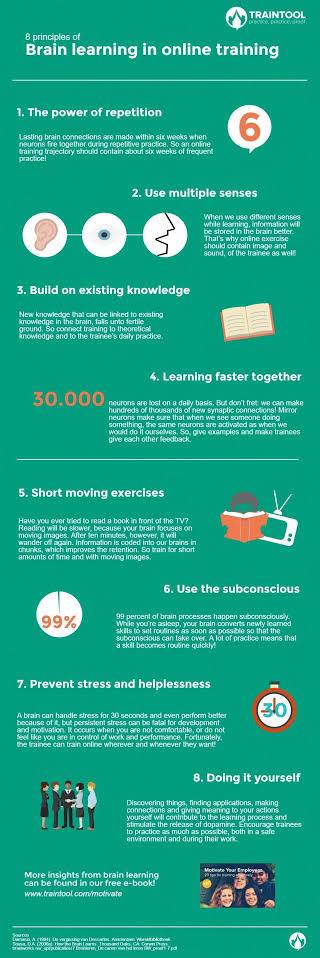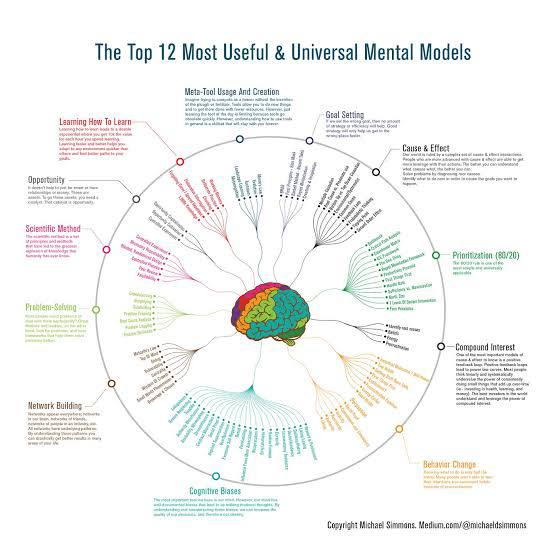Studying Hard vs. Studying Smart
We’ve all known that one student who spends countless hours with their nose buried in textbooks, only to get average results. Meanwhile, someone else seems to breeze through exams with less effort but sharper focus and better retention.
The difference isn’t luck—it’s strategy. For decades, the mantra has been to “study hard”, but modern science shows that studying smart is far more effective.
This article will show you how to leverage evidence-based techniques, such as active recall, spaced repetition, and the Pomodoro Technique, to help you study smarter, not harder. Whether you’re a student aiming for top grades or a lifelong learner, training your brain the right way will transform how you study—and how much you retain.
Why Studying Hard Isn’t Always Effective
The belief that putting in more study hours guarantees better academic performance is a common misconception. While discipline and consistency matter, studying for long periods without strategy can actually be counterproductive.
A study published in Nature Communications revealed that mental fatigue significantly decreases cognitive control and focus. When your brain is overworked, your ability to process and retain information drops sharply. This condition, often called cognitive overload, means that after a certain point, more studying just leads to diminishing returns.
In addition, prolonged, unfocused study sessions can cause academic burnout, which the World Health Organization classifies as a syndrome caused by chronic stress. Burnout can lead to exhaustion, detachment, and poor performance—not exactly the results we’re aiming for.
The Science of How We Learn
Before diving into study techniques, it’s essential to understand how learning actually happens in the brain. At its core, learning is the process of forming and strengthening neural connections. When you encounter new information, your brain goes through three major steps: encoding, storage, and retrieval.
This entire process relies on neuroplasticity, the brain’s ability to change and adapt by forming new neural pathways. According to a study published in Nature Reviews Neuroscience, repeated activation of these pathways strengthens them over time—like building muscle with regular exercise.
Smart study techniques, like active recall and spaced repetition, work precisely because they mirror this natural process. They force the brain to actively retrieve information and revisit it at optimal intervals, which enhances memory consolidation.
Smart Study Techniques Backed by Science
Active Recall
Active recall is a technique where you actively test yourself on the material you’ve studied, instead of passively reviewing it. This strengthens memory pathways and improves long-term retention. According to a study published in Applied Cognitive Psychology, students who used active recall outperformed those who simply reread notes.

This image explains how the brain learns best during online training — using repetition, senses, and short, active sessions. It highlights that learning together and using daily practice makes knowledge stick longer.
How to apply it: After reading a chapter, close the book and try to summarize the key points. Use flashcards or quiz yourself without looking at the material. Tools like Quizlet make this process easier and more interactive.
Spaced Repetition
Spaced repetition involves reviewing information at gradually increasing intervals. This technique leverages the spacing effect, a psychological principle that says we remember things better when our brain is forced to retrieve them over time.
A 2014 study published by the National Institutes of Health confirms that spaced repetition significantly improves long-term memory retention compared to massed (crammed) learning.
How to apply it: Instead of reviewing the same content daily, revisit it after one day, then three days, then a week. Apps like Anki automate this process using smart algorithms.
Pomodoro Technique
Created by Francesco Cirillo, the Pomodoro Technique improves focus by breaking study sessions into 25-minute focused intervals followed by 5-minute breaks. According to the official Pomodoro Technique website, this method helps combat procrastination and mental fatigue.
How to apply it: Set a timer for 25 minutes and work on one task without distractions. After the timer rings, take a 5-minute break. Repeat the cycle four times, then take a longer break.
Feynman Technique
The Feynman Technique, named after Nobel Prize-winning physicist Richard Feynman, is based on the principle that teaching is the best way to learn. Explaining a concept in simple language forces you to understand it deeply.

This image introduces the Feynman Technique, which says you understand better when you teach in simple words. It also shows 12 powerful mental models that help improve thinking, decision-making, and learning.
How to apply it: Choose a topic, pretend to teach it to a 10-year-old (or actually do it), and note where you get stuck. Those gaps highlight what you need to review again. More on how the Feynman Technique works here.
Interleaved Practice
Interleaving means mixing different topics or types of problems within a single study session, rather than focusing on one subject (known as “blocked” practice). A study in Psychological Science showed that students who used interleaved practice scored significantly higher on tests than those who studied topics one at a time.
How to apply it: If you’re studying math, mix geometry problems with algebra. If it’s history, alternate between events and historical figures. This keeps the brain engaged and improves problem-solving ability.
Train Your Brain: Habits That Boost Cognitive Performance
Prioritize Sleep
Sleep is not a luxury—it’s essential for memory consolidation. During deep sleep, your brain processes and stores the information you learned throughout the day. According to a study by Harvard Medical School, inadequate sleep can reduce focus, creativity, and recall.
What to do: Aim for 7–9 hours of uninterrupted sleep each night. Avoid screens at least an hour before bed to enhance sleep quality.
Fuel Your Brain with the Right Foods
Your brain runs on nutrients just like the rest of your body. Diets rich in omega-3 fatty acids, antioxidants, and vitamins are linked to better memory and cognitive function.
A review in Frontiers in Aging Neuroscience confirms that foods like blueberries, walnuts, dark chocolate, and fatty fish can boost brain performance.
What to do: Incorporate “brain foods” into your daily meals, and stay hydrated—even mild dehydration can impair attention.
Exercise Regularly
Exercise doesn’t just keep your body fit—it boosts brain function too. Physical activity increases levels of brain-derived neurotrophic factor (BDNF), a protein that supports learning and memory.
A study published in PNAS showed that regular aerobic exercise enhances hippocampal volume—the part of the brain involved in memory.
Practice Mindfulness and Meditation
Mindfulness and meditation have been shown to increase attention span, reduce anxiety, and enhance emotional regulation—key factors in academic performance. According to a report by the American Psychological Association, even brief daily meditation can improve concentration and working memory.
What to do: Start with just 5–10 minutes of guided meditation using apps like Headspace or Insight Timer.
Eliminate the Enemies of Smart Studying
Digital Distractions
Your phone is a powerful tool, but also a massive source of distraction. Every notification, buzz, or urge to check Instagram breaks your focus cycle, and it can take over 20 minutes to regain deep concentration. A study from the University of California, Irvine found that frequent interruptions reduce productivity, increase stress, and lead to shallow work.
What to do: Use apps like Forest or Freedom to block distractions and keep your phone out of sight during Pomodoro sessions.
Multitasking
Multitasking might feel productive, but your brain can’t fully focus on more than one cognitive task at a time. According to a report by the American Psychological Association, multitasking not only slows you down but also increases the likelihood of mistakes and makes learning less effective.
What to do: Stick to single-tasking. Focus on one subject, one topic, or one activity at a time. Batch similar tasks together and resist the urge to toggle between tabs.
Cluttered Environment
A cluttered space leads to a cluttered mind. Visual distractions in your study area compete for your attention and reduce working memory capacity. A Princeton University study found that physical clutter in your surroundings competes for your attention, resulting in decreased performance and increased stress.
What to do: Keep your workspace clean and organized. Use minimal tools—just what you need for the session.
Create a Personalized Smart Study System
Know Your Learning Style
Are you a visual learner who benefits from charts and mind maps? Or do you grasp concepts better through discussion and explanation? While some researchers argue that learning styles are not fixed, studies show that tailoring content delivery to individual preferences can boost engagement and comprehension.
What to do: Try different formats—videos, flashcards, diagrams, podcasts—and note which ones help you retain the most.
Design a Realistic Study Schedule
Consistency beats intensity. Rather than cramming for five hours on Sunday, a personalized system includes regular short sessions, balanced with breaks and rest. Use digital planners like Notion or Google Calendar to block time and stay organized.
What to do: Set aside specific times for study, review, active recall, and rest. Be realistic and build in flexibility to avoid burnout.
Experiment and Optimize
The best systems evolve. Try different techniques—Pomodoro, Feynman, interleaving—and track what works. Apps like Obsidian or Evernote let you take smart notes and reflect on your learning process.
What to do: Keep a “study log” to track focus, techniques used, and recall rates. Adapt based on your performance and how energized you feel.
Study Smart, Live Smarter
In today’s fast-paced and information-heavy world, studying hard is no longer enough. The students who succeed are those who know how to leverage their brain’s natural capabilities using smart, sustainable techniques. As we’ve explored, effective learning isn’t about pushing harder—it’s about aligning your efforts with how the brain truly works.
By embracing techniques like active recall, spaced repetition, the Pomodoro Technique, and the Feynman Method, you’re not just memorizing—you’re mastering. When combined with healthy lifestyle habits, a distraction-free environment, and a system tailored to your personal needs, your learning becomes more efficient, less stressful, and deeply rewarding.
Frequently Asked Questions: Study Smart, Not Just Hard
What does it mean to “study smart”?
Studying smart means using evidence-based techniques and habits that align with how the brain learns best, rather than relying only on long hours or rote memorization.
How is studying smart different from studying hard?
Studying hard focuses on effort and time spent, while studying smart focuses on efficiency, strategy, and scientifically proven learning methods.
What is active recall, and why is it effective?
Active recall involves testing yourself on material from memory. It strengthens memory retrieval and has been shown to improve long-term retention more than passive review.
How does spaced repetition work?
Spaced repetition involves reviewing information at increasing intervals. It combats the forgetting curve and helps move knowledge into long-term memory.
What’s the Pomodoro Technique, and how can it help me study better?
It breaks study time into 25-minute focused sessions followed by 5-minute breaks, improving concentration and reducing fatigue.
Can I use digital tools to study smarter?
Yes! Apps like Anki, Notion, Forest, and Quizlet support active recall, spaced repetition, organization, and focus.
How much sleep do I need to improve learning?
Most adults need 7–9 hours of sleep. Deep sleep is critical for consolidating new information and enhancing memory.
Does exercise really help the brain?
Absolutely. Regular aerobic exercise increases brain plasticity, improves mood, and boosts memory and focus.
What are “brain foods” and how do they help?
Foods rich in omega-3s, antioxidants, and vitamins—like walnuts, blueberries, and fatty fish—support memory and cognitive function.
What is the Feynman Technique?
It involves explaining a concept in simple language to identify gaps in understanding. Teaching something helps you learn it better.
Is multitasking bad for studying?
Yes, multitasking reduces productivity and learning efficiency. The brain works best when focusing on one task at a time.
Why is a clutter-free environment important for studying?
A clean, organized space helps reduce distractions, improve concentration, and create a mental sense of calm.
How can I identify my learning style?
Experiment with formats like videos, diagrams, audio, or group discussions, and notice which ones help you retain information best.
Can mindfulness and meditation improve my learning?
Yes, practicing mindfulness enhances focus, reduces stress, and improves working memory and emotional regulation.
What’s the best way to take notes while studying?
Use methods like the Cornell system or mind mapping. Combine notes with active recall to reinforce learning.
How can I stay motivated while studying?
Set small, achievable goals, track your progress, reward yourself, and connect your studies to long-term personal goals.
Is studying at night bad for memory?
Studying late isn’t bad in itself, but sleep deprivation afterward can hurt retention. It’s better to study when alert and well-rested.
Should I study with music?
It depends. Instrumental music or ambient sounds can help some people focus, but lyrics or loud music may be distracting.
How can I make my study plan more effective?
Build a routine with regular sessions, use spaced repetition, track progress, and allow time for breaks and review.
What’s the biggest mistake students make when studying?
Relying solely on rereading or cramming without testing themselves, spacing reviews, or addressing mental and physical health.
– Authored by Mridu Mishra





